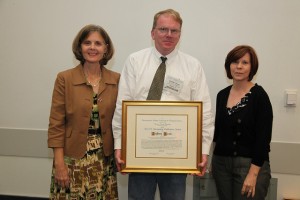So you’re part of the open resources movement in higher education, and resolved to publish your work in open access journals. This is commendable. And if your potential publication is in the field of open and distance learning, then you can happily go to leading open access journals such as the International Review of Research in Open and Distance Learning or the International Journal of E-Learning & Distance Education.
But what if you are in a different field or discipline, and you’re not sure. How can you check that the open access journal to which you’re submitting your precious words is legitimate? You are probably aware that, just as in the past we had the contagion of bogus institutions (the notorious ‘degree mills’), so there has been recent rapid growth in the number of disreputable (to put it mildly) open access journals.
Well you’re in luck, as someone out there is doing the work for you, and very good work it is indeed. I was browsing Martin Weller’s blog (yes, him again) when I spied a link to a site dedicated to exposing predatory journals and publishers. Our hero is Jeffrey Beall, a librarian at the University of Colorado Denver, and his site is Scholarly Open Access: Critical analysis of scholarly open access publishing.
The site is a blog with added pages devoted to lists of predatory publishers and standalone journals. And how many are on the lists? Well, the publishers list has 76 entries – and that’s just under ‘A’, from ‘A M Publishers’ to ‘Avicena Publisher’. Yes, there are hundreds, so I gave up trying to counting them. Similarly for the predatory journals: 33 under ‘A’, with even a couple of dodgy Australian titles (not necessarily originating in Australia, of course), Australian Journal of Basic and Applied Sciences and Australian Journal of Business and Management Research. Note that I’m not providing the links – I have no wish to even inadvertently advertise them!
Yes, there are some education titles in the list of shame, including the European Journal of Educational Research and the International Journal of Scientific Research in Education. What is also very helpful on the lists pages is a link to the criteria for determining predatory journals. This is detailed and impressive, providing us with a host of clues to help when determining a journal’s standing (or lack of same). For example, predatory publishers/journals may:
- Publish papers already published in other venues/outlets without providing appropriate credits.
- Use language claiming to be a “leading publisher” even though the publisher may only be a startup or a novice organization.
- Operate in a Western country chiefly for the purpose of functioning as a vanity press for scholars in a developing country.
- Do minimal or no copyediting.
- Publish papers that are not academic at all, e.g. essays by laypeople or obvious pseudo-science.
- Have a “contact us” page that only includes a web form, and the publisher hides or does not reveal its location.
Along with the ever-expanding lists, the blog posts are instructive, revealing that the scams are becoming ever more complex and difficult to control. The posts provide specific details of instances of phishing, journal ‘hijacking’ and bogus metrics companies, muddying the measurement of impact factors.
Finally, in the interests of fair play, those who think they have been unfairly maligned through their inclusion in the lists can appeal the judgement. Even better, the appeals and responses to them are published on the Appeals page, some of them providing fascinating reading.
So, by all means pursue your lofty and worthwhile aim of publishing in open access journals, but as with most things in life, beware!
photo credit: Jeffrey Beall via photopin cc


Thanks for the link to Scholarly Open Access – well worth knowing about !
Thank you so much for this post. Jeffrey Beall is indeed, as you imply, an unsung hero. He also has to bear the burden of counter-presssure all by himself, as witnessed once by the threat of a billion dollar lawsuit against him personally.
How many other individuals could take on such a
responsibility?